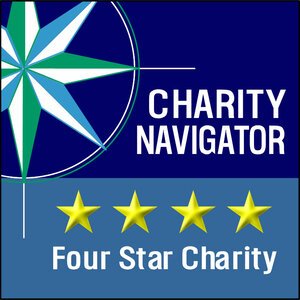March 2022
Before we jump into this month’s question, we want to take a moment to remember Gwen Petersen. She brought vitality and humor to her Ask a Cowboy Poet contributions, and to so many other areas that her life touched upon. We were lucky to have her.
And we like to think she’d heartily approve of two new advice-givers who have joined the column! We’re honored to have Virginia Bennett and DW Groethe on board to pitch in their pearls of wisdom.
This month’s musing comes from Jonathan, who asks the poets about the poets they admire. What a great question. Wise knows wise. If someone inspired this crew, that’s someone to consider. (For our part, if we were asked which poet we most admired, it’d be a real laundry list situation. There’s no shortage of muses around here!)
If you’d like the cowboy poets to reflect on your musings, submit a question. Submissions can be made on our Facebook, Instagram, or by email to media@westernfolklife.org.
“
Dear Cowboy Poets,
Prior to the resurfacing of cowboy poetry and the launch of the National Cowboy Poetry Gathering in 1985, which poet did you most admire and why? Did you ever get the chance to meet them? If you are so inclined please describe something memorable about them as a person or about their writing.
— Sincerely, Jonathan
Bill Lowman:
Baxter Black, of course, who didn't? We have been friends ever since. His honesty impressed me most, he never tried to blow anybody away as being a great cowboy. His experience in that category came from being a cowboy veterinarian, but he is extremely keen and sharp as being a student of the cowboy.
I have had the great honor of sharing the stage with him several times in different locations, the first being early on at Elko. It was the big closing night main show in the civic center auditorium. Out of all the great poets and singers assembled, Red Steagall, Baxter Black, and myself were chosen. To this day, I haven't figured out how I got on the ticket, but anyway the starting time was delayed nearly half an hour due to fire code regulations. There were people standing shoulder to shoulder in the aisles and along the walls. When Baxter took center stage, with true cowboy humbleness, he apologized to the crowd for the delay, saying that if Bill Lowman wouldn't have been on the card, having drawn such a huge crowd, he and Red could've started on time. That was a compliment of a lifetime, even though it was a backstage joke.
Waddie Mitchell:
Prior to the Gathering, there were a number of poets I was enamored with. Gail Gardner, S. Omar Barker, Kris Kristofferson (all of whom I'd spoken with a few times over the phone), Robert Service, Robert Frost, Badger Clark, etc., but the poet I was impressed most with was always Bruce Kiskaddon. He could always put me in a place with people I was comfortable with, teach, or make me go into brain and memory to relive realistic times and places, some of which I'd never seen or done before him. He reeks of right in situation, tradition, and philosophy. Though his words are simple, his messages are not.
Picking a favorite poet is like trying to pick your favorite child, each with their own attributes and genius. It is next to impossible. My response to this question is in no way meant to diminish the talent or importance of any other poet. I love and admire so many for so many reasons, it's just I think I spent more evenings as a young man in Bruce Kiskaddon's world and after fifty-plus years he still holds my attention and admiration.
Dick Gibford:
My answer: the old cowboy poets rode a silent trail. These would be my grandpa’s generation. I was born in 1949, my dad in ’23, grandfather in ’98. My father’s generation, to my knowledge, did not have many cowboys who wrote poetry, very few. I think that two world wars took a lot of the romance of the cowboy out of the equation. Yet in the late 1800s and early 1900s there was a renaissance of cowboy culture producing some great artists and poets. A few I can think of would be: Kiskaddon, Gail Gardner, S. Omar Barker, Badger Clark, and Curley Fletcher. Most of my generation did not get to know them personally. Maybe a few, Waddie and Hal, I believe, met Gail Steiger’s grandfather, Gail Gardner. He was a wonderful cowboy poet of the old school who wrote the famous poem, “Tying Knots in the Devil’s Tail.” As far as which ones I most admired, it’s impossible to say, having never met them. But I admired all the old-time cowboy poets and envied them as well. They lived the time just before the automobile and industrial age. They took part in the last phase of the old West, when there were still few fences and most every cowboy packed a six shooter. This last glimmer of light from the final sunset on the western open cattle range had a strong influence in causing such creative inspiration. In closing, I will say that my generation drew a powerful lot of inspiration from the poetic and romantic genius pool that collected in the early 1900s. Speaking for myself and a few others, our poetry did not develop or evolve until the venue of the Elko Cowboy Poetry Gathering began, before that we only dabbled in it.
DW Groethe:
Jonathan,
Though I've been reading, writing, and spouting poetry my whole life it wasn't till the early nineties that I became aware of "cowboy" poetry. It was then I realized I'd been writing it for decades and didn't even know it. That being said, about 1969, when I was attending school at USD in South Dakota someone showed me a book of poetry by Badger Clark. I was hooked. I have memorized a few of his poems through the years and still do "The Piano at Red’s." His books are always close to my reading chair.
I grew up in western North Dakota and even though some of Badger’s poetry has a southwestern feel to it, it still resonates with life on the northern plains. He passed on in the '50s, so I never got the chance to meet him. It would have been fun chatting with him and maybe swap some yarns. I bet he had some great stories.
Thanks for the question, Jonathan. It was fun thinking back on Badger.
Virginia Bennett:
I didn’t grow up on a ranch out West. However, I did spend the first 19 years of my life in New Hampshire with a father who loved sharing the old ways of doing things on a farm. From the age of 10 until I was 18, it was just my dad and I in the house and having that precious time with him, learning the ways of self reliance and stock husbandry, was a gift I will always treasure. Of course, being in that rural New England area, the most recognized poet was Robert Frost. As a child in school, I remember being required to memorize his “Stopping by Woods on a Snowy Evening,” as well as other well-loved Frost poems. Years later, I found a paperback collection of all of his work and was surprised to see that he probably wrote abstract, free verse more often than he did the traditional rhyme and meter to which I was drawn. Now that I am 70 years old and no longer writing (due to a head injury incurred in a “horse wreck” in 2004) and my memory is becoming more unreliable, I can look back on my own writings as though they were written by someone else, and I quite easily see the influence of the New Hampshire bard upon my work. And I still like it. I love the balanced meter so often compared to the steady beat of a horse’s hooves upon the earth. And I am pleased by the ever-present scenes of nature in every poem I wrote. I am critical in places and think now of different words or phrases I could have used back then, but, with a smile, I reflect that I’ve probably earned my right to critique my own poetry.
One year after high school graduation, I found my way to Arizona, where I trained ranch and barrel horses. Later, I met the cowboy who has been by my side for almost half a century thus far, and we worked together on western cattle ranches for the next 31 years until my little crash into the California dust precluded my ability to ride and work. My remembrances of a life well spent out in the sage-lands of the American West are enhanced by the friends and experiences I garnered through each of the years I participated in the Cowboy Poetry Gathering in Elko. My first year at the Gathering was in January 1990, and I still recall many of the performances my family and I raptly viewed on the stage before us, including legends like Red Steagall, Baxter Black, Paul Zarzyski, Gwen Peterson, and Joel Nelson, and so many others. Just imagine the smile that came over my face as I sat in the cushioned theater seats of the convention center, eagerly absorbing every word spoken by the highly respected horseman, Joel Nelson, as he introduced the next piece he planned to recite by saying, “The poem I want to share next was written by that famous cowboy poet, Robert Frost.” He went on to speak the words of my youth that had settled into my soul so long ago as he recited Robert Frost’s “The Road Not Taken.” Sitting there on the edge of my chair, I was 38 years old and sensed the fulfillment of my past and the promise of my future as a wife, mother, horsewoman, cowboy poet, and ranch hand. Frost’s words spoken in that wonderfully arid, wind-blown Texas drawl of Joel Nelson seemed to seal the circle of dreams in that young, horse-crazy Yankee girl who came West as soon as she could to discover the visions she believed had always flowed through her veins with the same DNA as her grandfather who worked with draft teams almost every day of his life, and, before that, the blood of the refugees who crossed the Atlantic looking for wide open ranges of freedom and the eternal right of all of us to experience our own personal choice of religion. Joel, who would later become a respected friend, had no way of knowing at the time that he was speaking right to my heart, as the last verse in that famous poem, penned in 1912, rang out over the hushed audience of the Elko Convention Center auditorium:
I shall be telling this with a sigh
Somewhere ages and ages hence:
Two roads diverged in a wood, and I,
I took the one less traveled by,
And that has made all the difference.









